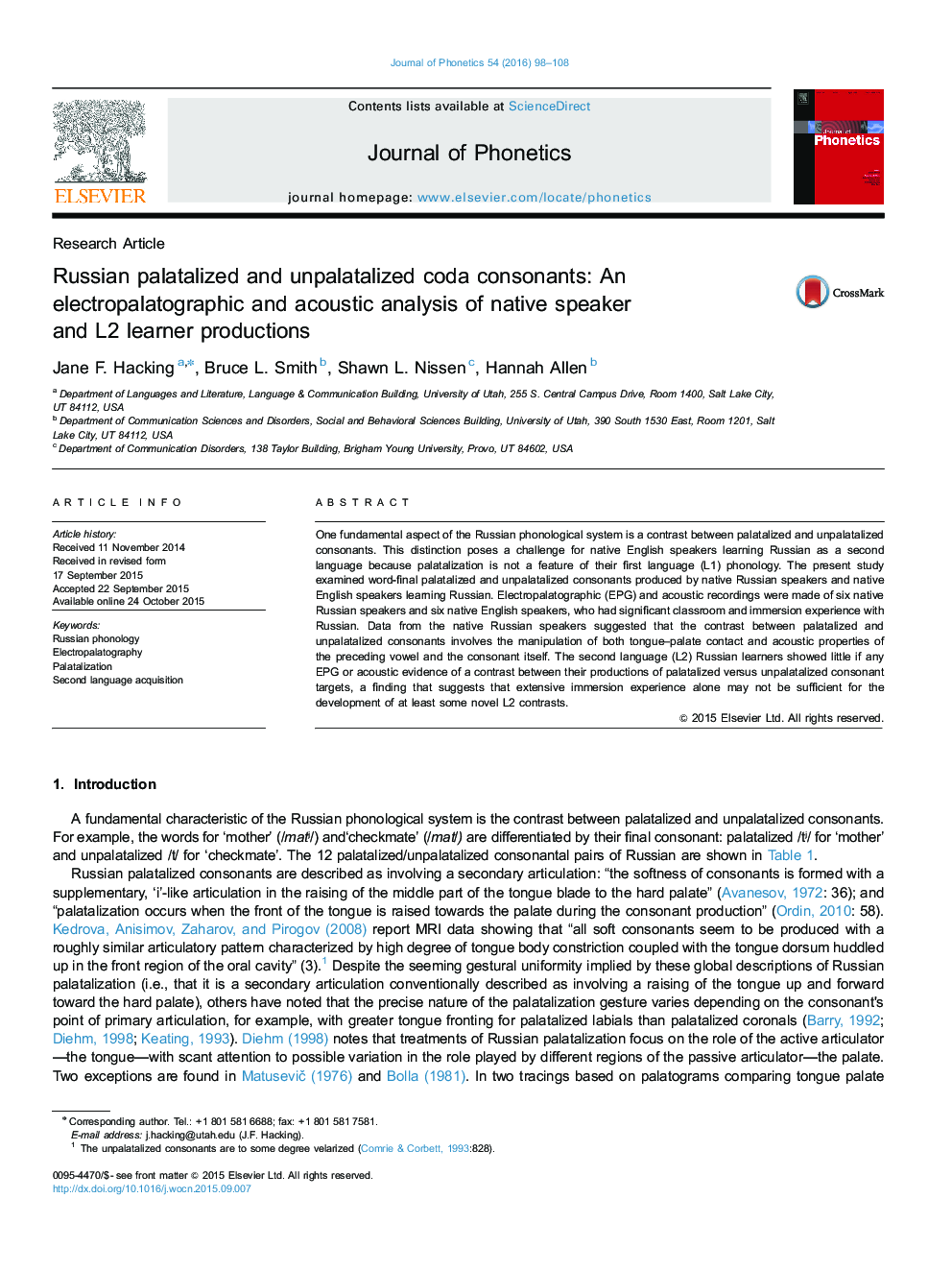| Article ID | Journal | Published Year | Pages | File Type |
|---|---|---|---|---|
| 7532857 | Journal of Phonetics | 2016 | 11 Pages |
Abstract
One fundamental aspect of the Russian phonological system is a contrast between palatalized and unpalatalized consonants. This distinction poses a challenge for native English speakers learning Russian as a second language because palatalization is not a feature of their first language (L1) phonology. The present study examined word-final palatalized and unpalatalized consonants produced by native Russian speakers and native English speakers learning Russian. Electropalatographic (EPG) and acoustic recordings were made of six native Russian speakers and six native English speakers, who had significant classroom and immersion experience with Russian. Data from the native Russian speakers suggested that the contrast between palatalized and unpalatalized consonants involves the manipulation of both tongue-palate contact and acoustic properties of the preceding vowel and the consonant itself. The second language (L2) Russian learners showed little if any EPG or acoustic evidence of a contrast between their productions of palatalized versus unpalatalized consonant targets, a finding that suggests that extensive immersion experience alone may not be sufficient for the development of at least some novel L2 contrasts.
Related Topics
Social Sciences and Humanities
Arts and Humanities
Language and Linguistics
Authors
Jane F. Hacking, Bruce L. Smith, Shawn L. Nissen, Hannah Allen,
